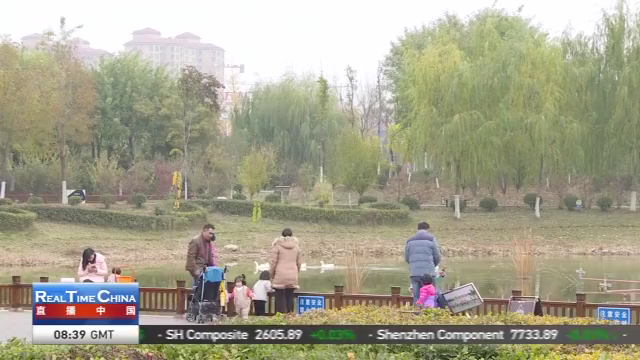
18:27, 07-Dec-2018
China Reform and Opening Up: Touring around Central China’s 'garden city'
Updated
17:40, 10-Dec-2018
02:07

Besides known as a "sponge city", Hebi is also known as the "garden city" due to its large green spaces. CGTN's Li Jianhua tours the city to find out why.
LI JIANHUA HEBI, HENAN PROVINCE "Welcome to the central Chinese city of Hebi. This city is abundant with coal resources, which probably would remind you of pollution. But despite that, the city is called a 'garden city' with gardens literally scattered throughout town. The residents here basically live in one big garden."
LI JIANHUA HEBI, HENAN PROVINCE "This particular garden is well-known for its bamboos which are seen as the symbol of this city. Bamboos, due to its resilient features, are considered noble. Throughout Chinese history, they've represented integrity in governance."
LI JIANHUA HEBI, HENAN PROVINCE "Some associate autumn as a time when things become silent. But in this city, the changing colors make things vivid and loud. Outside the window, you see various kinds of trees neatly lined up on both sides of the street. What impresses me the most is, at every crossroad you can find a mini-garden, hence the city's nickname, a garden city."
LI JIANHUA HEBI, HENAN PROVINCE "However, it isn't just about looks here. Hebi is also quite smart, so much so it's called a sponge city."
LI JIANHUA HEBI, HENAN PROVINCE "Technically, a sponge city is a city that's designed to absorb and use rainfall that reduces dangerous and polluted runoff. Hebi City was labelled a 'sponge city' in 2015. The pavement has been replaced by permeable material. Wetlands, green rooftops and rain gardens have been built to make rainwater work for the city instead of against it. The government plans to whip up the percentage of sponge cities in China despite challenges such as a lack of funding, but its pros definitely outweigh its cons. LJH, CGTN, HEBI, HENAN PROVINCE."

SITEMAP
Copyright © 2018 CGTN. Beijing ICP prepared NO.16065310-3
Copyright © 2018 CGTN. Beijing ICP prepared NO.16065310-3